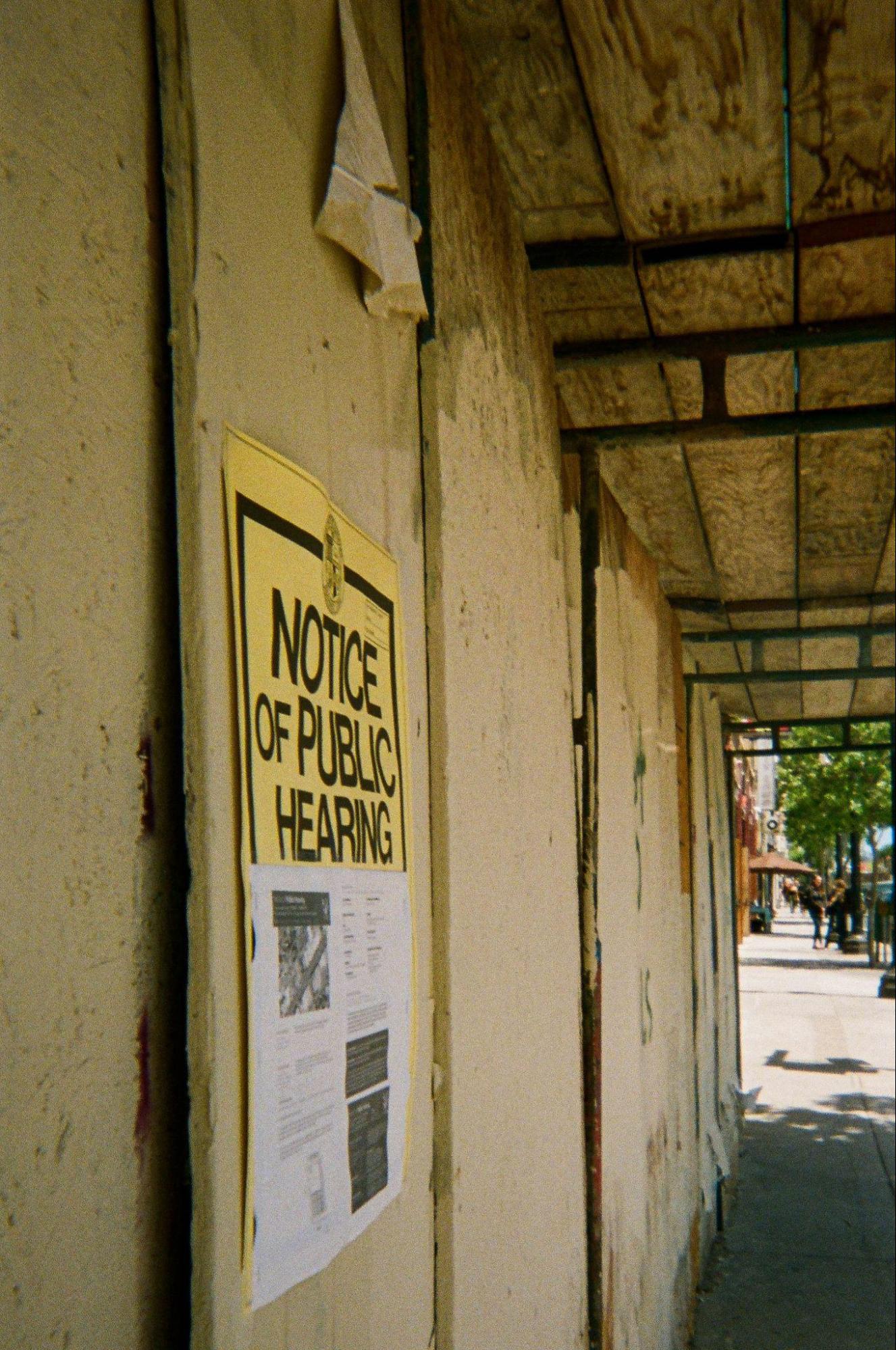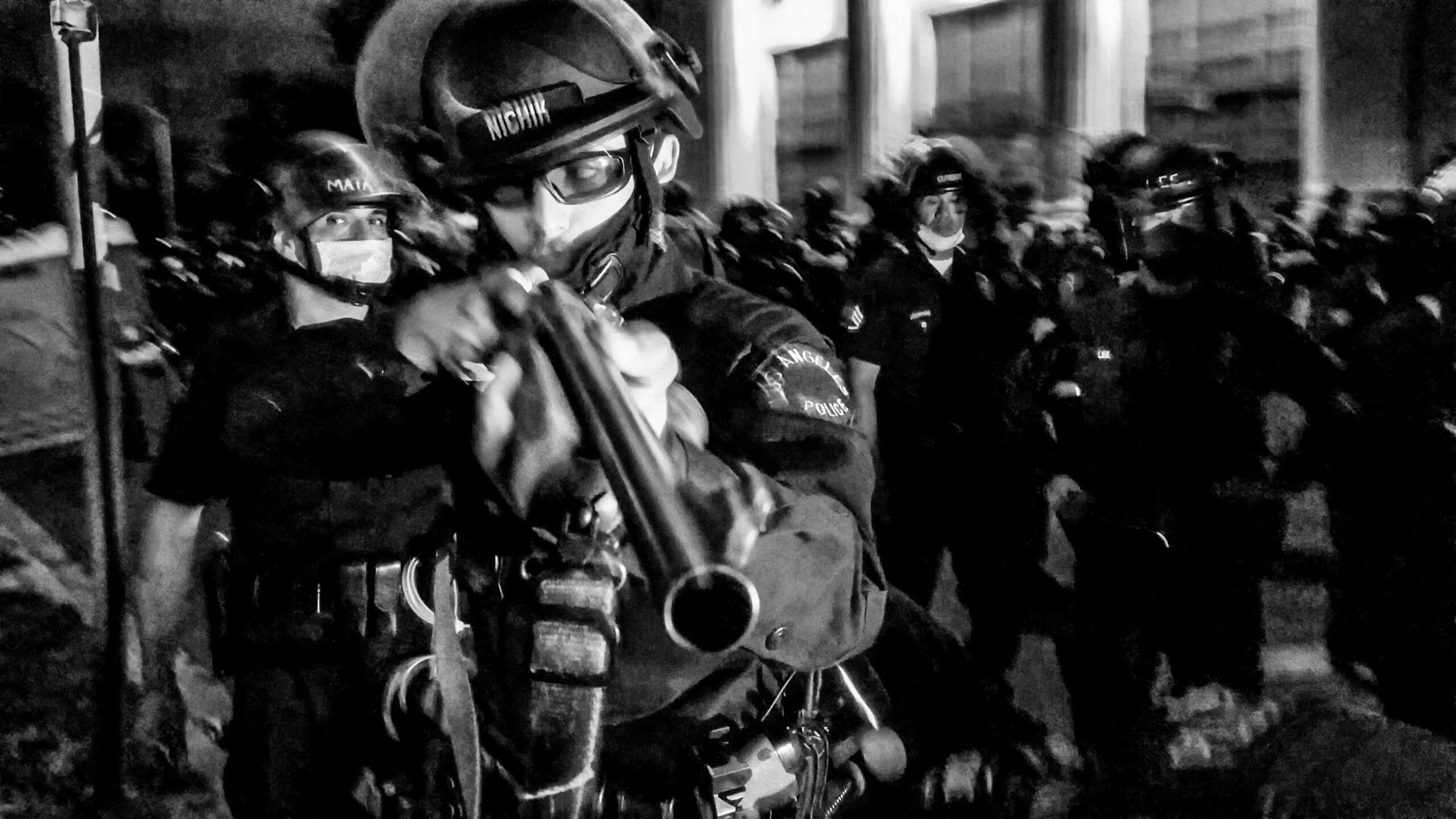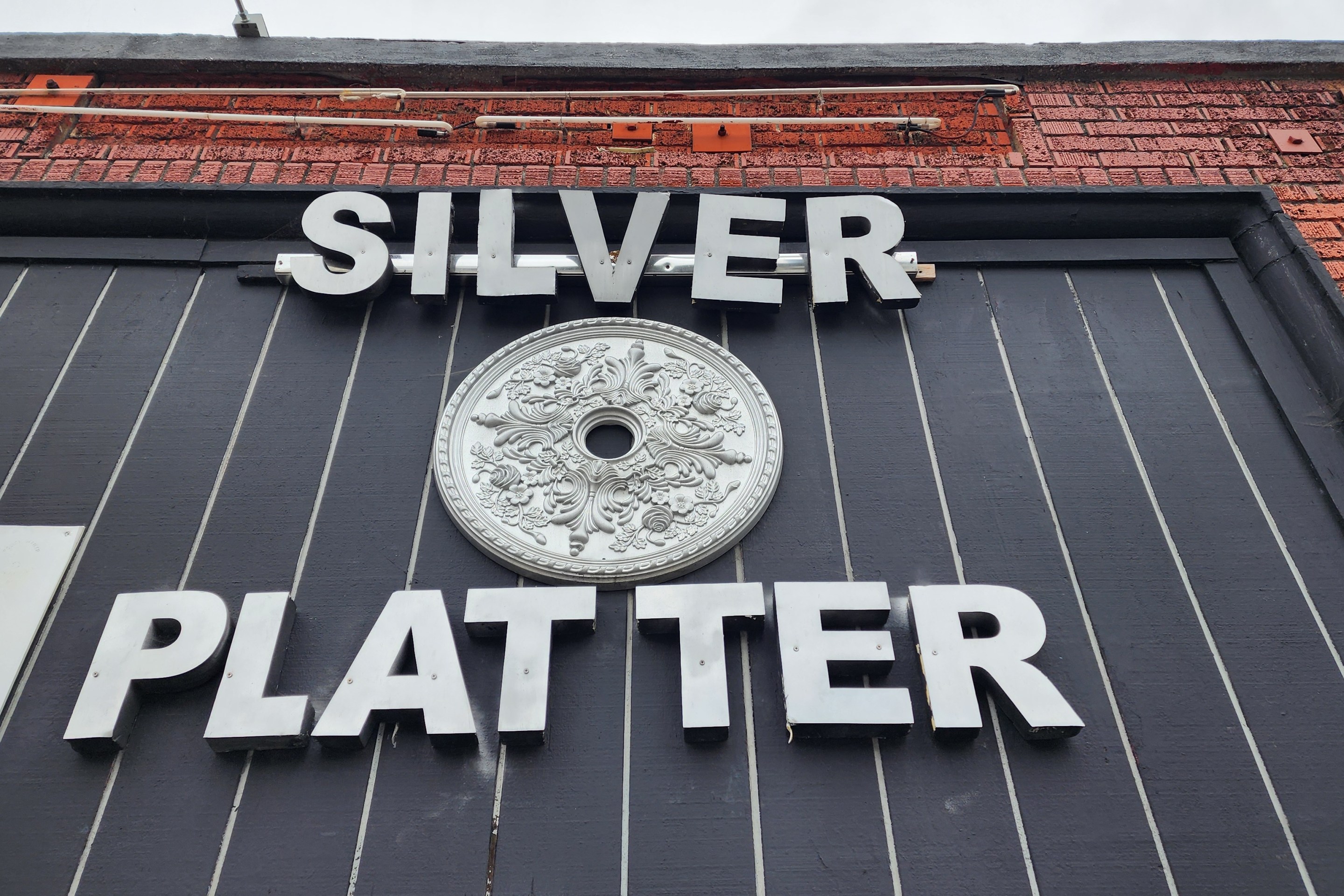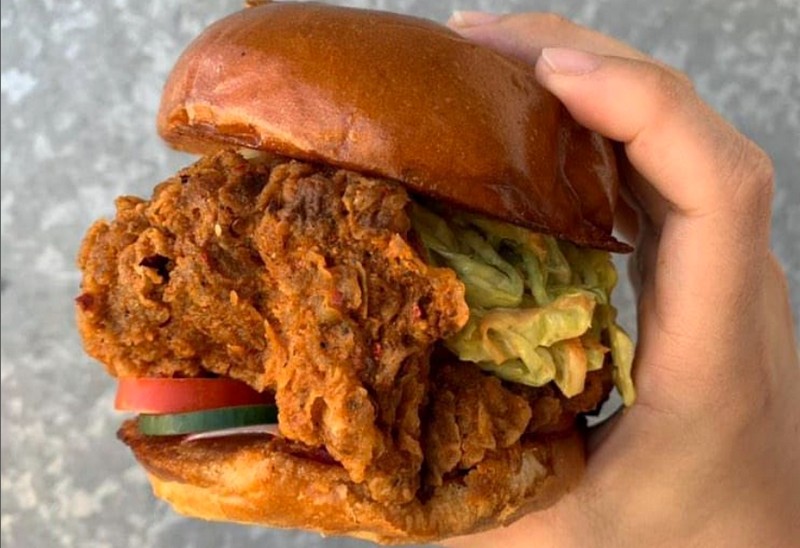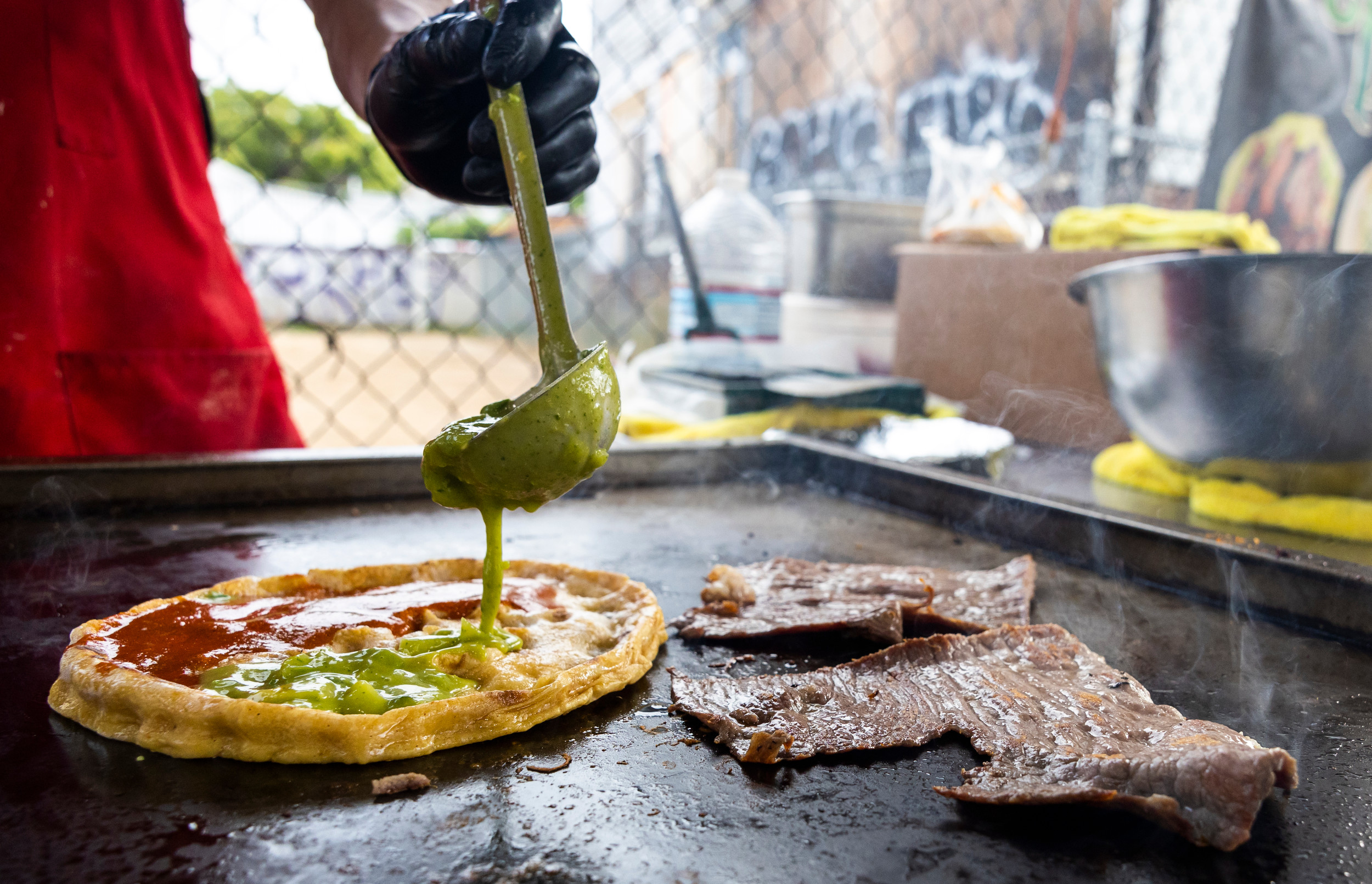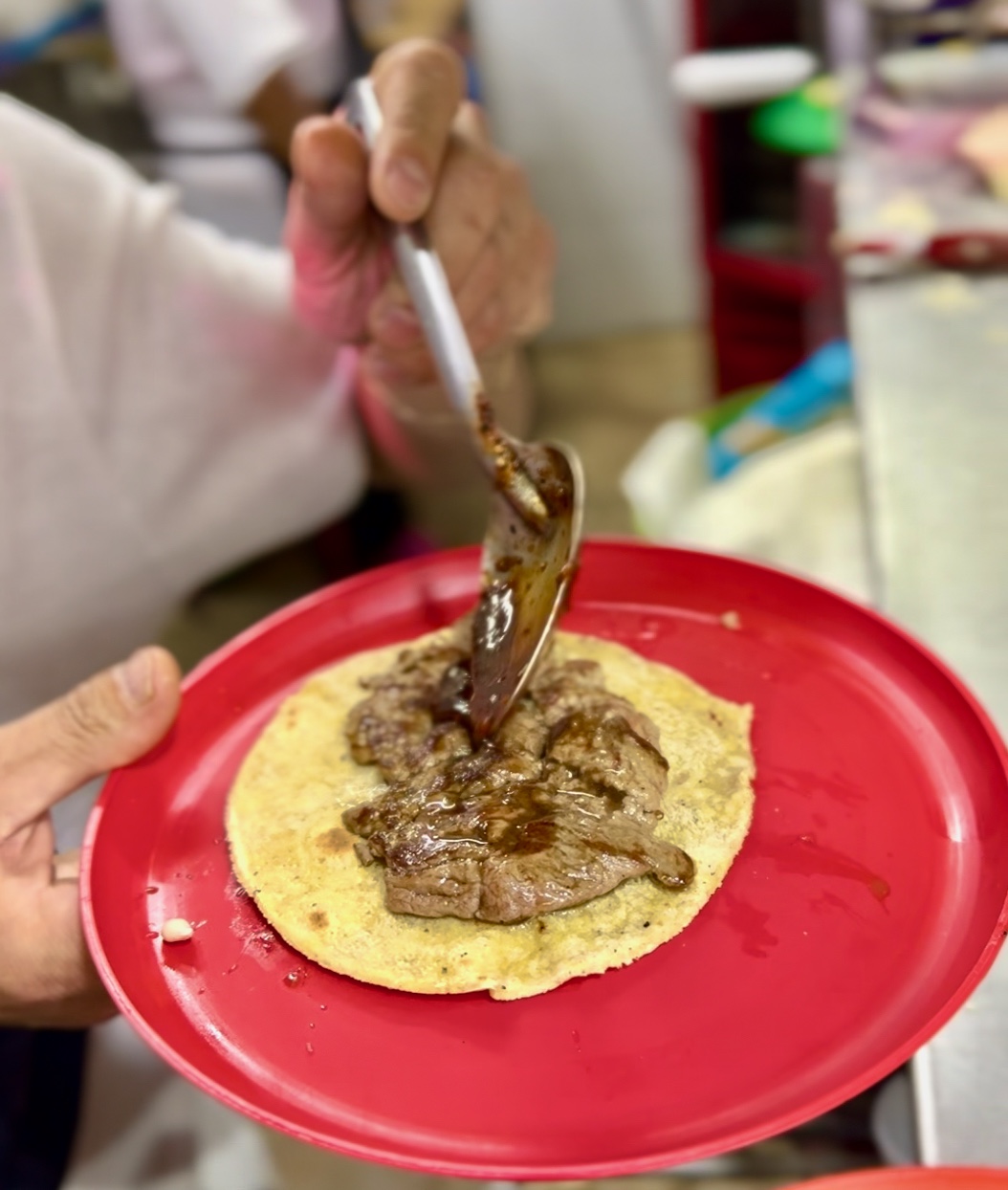Tacos and beer make sense. Pasta and wine. Sake and sushi. When an all-day cafe, Highly Likely, serving salads and bowls, went before the Historic Highland Park Neighborhood Council requesting a full line of liquor, I thought, “Wait a minute.” Do we need another bar?
Walking Figueroa Street and York Boulevard—Highland Parks' main stretches—intending to photograph La Estrella Tacos, Coco's Bakery Restaurant, Dollar Deal, and Botanica Ashe that all had recently closed, the numerous “Public Notice of Application to Sell Alcoholic Beverages” signs are what captured my attention.
“Approving more of these permits will further neglect our communities’ basic needs,” a young person I work with said. Conversations with Highland Park residents about the oversaturation of permits led to forming relationships with those most impacted by this prioritization of profit over people.
Gentrification, rooted in historically racist policies surrounding housing in the United States, is not inevitable like we have been led to believe. Instead, it is preventable or manageable. However, if regulations are not upheld, “gentrification inevitably leads to corporate control of neighborhoods,” according to How to Kill a City by P.E. Moskowitz.
An excessive amount of alcohol licenses, acting as a displacement tool, brings imbalance, neglect, and exclusivity to historically working-class neighborhoods such as Highland Park.
A report presented to the Historic Highland Park Neighborhood Council in December 2013 states, “Concerns of gentrification and displacement of longtime residents due to increased housing prices and an influx of new businesses that cater to a younger, wealthier population currently shape the dialogue of the future.” A decade later, tenants remain unprotected, and smaller businesses are also vulnerable to being priced out by those able and willing to pay more.
However, as quoted in The Eastsider’s article Fighting Gentrification in Highland Park, one Alcohol Permit at a Time, “having alcohol to serve is probably the only way to make ends meet,” though the bottom line is that Highland Park is severely exceeding ABC standards by 300%. Approving more is not just unnecessary but unmanageable.
When inquiring about license number 585642 and their outdoor patio obstructing part of the sidewalk on Figueroa Street, a Licensing Representative for ABC confirmed that no Conditional Use or COVID-19 Patio Permit authorizes the outdoor seating. He continued by saying he was “not sure who in the City” to inquire about this and that “they should not have tables outside.”
As if that wasn’t enough information, check it out:
First, an applicant applies with California’s Department of Alcohol Beverage Control (ABC). Next, the applicant goes before a neighborhood council where stakeholders can express concerns or support and even suggest conditions such as related to parking, noise restrictions, and hours of operation.
However, through an ordinance called the Restaurant Beverage Program, the public hearing portion when approving alcohol licenses is eliminated. In addition, though the City also holds a Public Hearing as an opportunity to provide input, such meetings are scheduled at generally inaccessible times.
This is important because someone needs to ask how a census tract such as 1838.10, where Mendocino Farms is set to open, can be authorized four on-sale licenses, but only ten are active. Or why Highly Likely, requesting a permit just across the street, closes at 9 pm in West Adams but was approved to close at 11 pm on Figueroa.
Finally, the applicant seeks local approval from the LAPD before Council District representatives decide. While our representatives are responsible for making community-informed decisions, there has been no effort to balance all the factors that prevent the community from making their voice heard.
So, with respect to Council Districts 2, 3, 4, 5, 10, 11, and 15 which have already adopted the Restaurant Beverage Program in Highland Park, some of us will try to protect our ability to have a say in what happens in our home. As Vice President of the Historic Highland Park Neighborhood Council, I was happy to take this research to propose action. On June 1st, the board approved a community plan to manage the 96 alcohol licenses that are already active in 3.4 square miles that make up the neighborhood in addition to those pending in our area.
Most importantly, before our representatives approve, the business must post a “Public Notice of Application to Sell Alcoholic Beverages,” which starts the 30-day timeframe community members have to file an appeal. A protest can be filed through the ABC-510 form in which an “ABC Appeals Board decision can be appealed to the State Courts of Appeal and the State Supreme Court” if a protest is deemed valid such as my own.
While we have people living in tents, mothers raising their children—our LAUSD students—in their cars, and tenants increasingly facing eviction, we do not need more liquor licenses. We need more regulations, representation, and respect in Highland Park, like the rest of Los Angeles.
